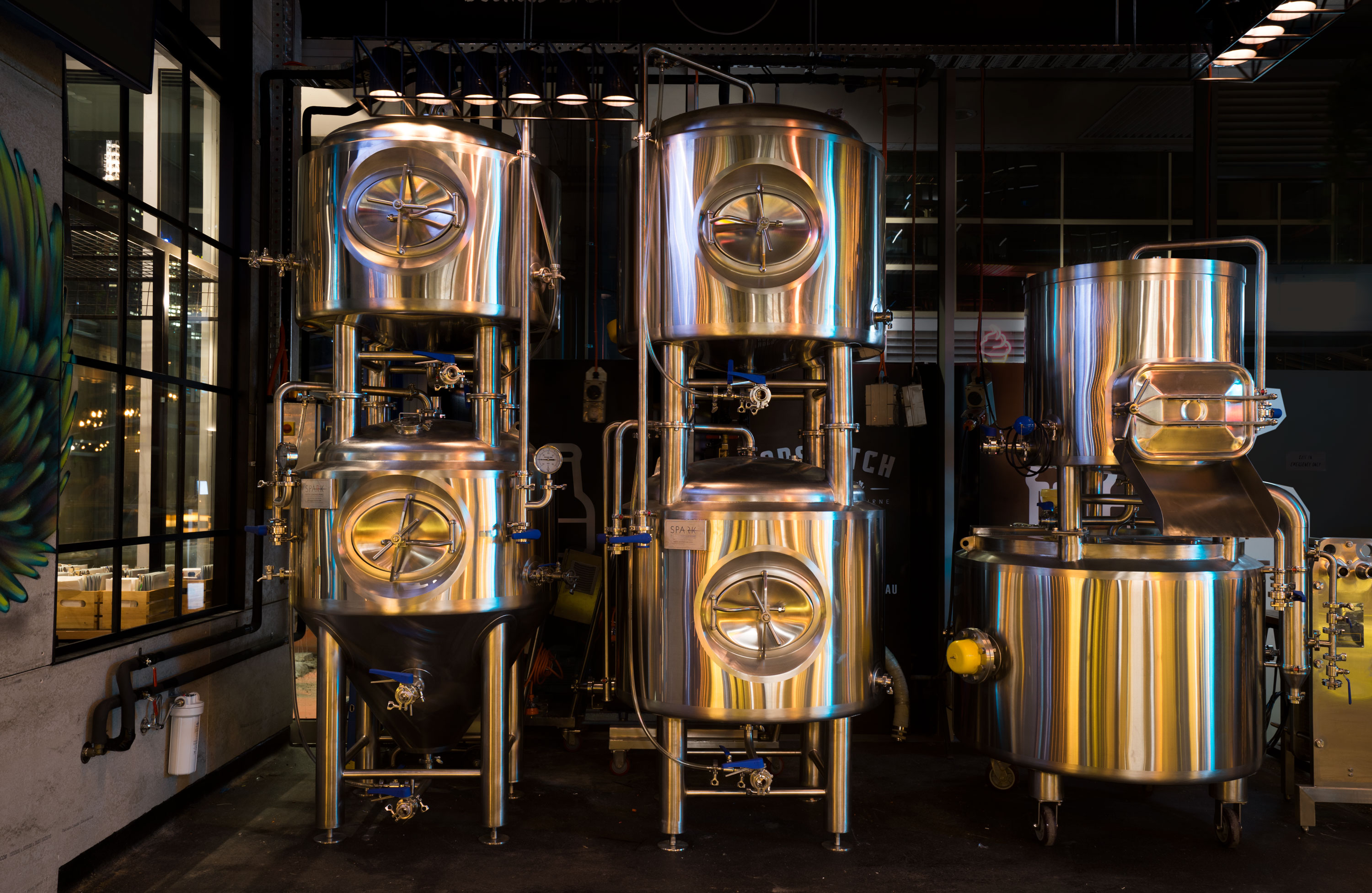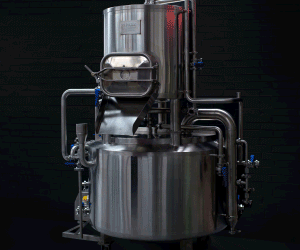
How to start a brewing company: Part One
In the first article of a three part series, SparkBreweries and Distilleries founder Julian Sanders outlines the initial areas of consideration for a commercial brewing start-up.

The Spark K500 at Melbourne venue Hopscotch
Business Model, Site Selection and Licensing
A clear business plan is the first step towards selecting an ideal site and brewing system.
There are two professional brewing business models:
1. Brew on premise – any newly licensed brewing company and most existing venues that sell 10 kegs a week can improve their profitability by brewing.
- The small brewer’s excise rebate and Spark’s equipment finance assist with making this happen.
- Clear differentiation from competitors, with local keg distribution and growler take aways as additional revenue streams.
- Requires a compact inexpensive brewing system that is easy to install and operate (Spark’s K500).
- Spark’s compact K500 also allows brewing, fermenting and serving from tanks built above fermenters: no need for kegging or bottling. This saves capital, space and time. The beer itself, having never “seen” light, heat or oxygen can be presented in perfect fresh condition.
- Drinkers of independent beer are a high growth, future relevant demographic.
2. Distribution brewing – requires kegging and packaging for relatively low margin, high volume distribution, typically through third party wholesalers, distributors and retailers.
- Relies on low unit cost of production via a large brewing system designed for multi batching each day up to double or quad batch fermenters.

Spark’s installation at Brouhaha Brewery in Maleny, Queensland
By focusing clearly on your chosen business model, you can pick a site that is ideal and design a brewing system to ensure that you establish strongly and then grow easily and profitably.
With a strong track record in both brewing and distilling systems, Spark can help you deal with the technical and financial aspects of achieving not just a brewery, but a successful brewing business.
There are three tiers of brewing regulation in Australia:
- Federal ATO excise licence to produce beer – this requires a fit and proper person check on personnel and defines a bonded area within the production facility. Excise must be paid on product that leaves this area or is consumed on site. Calibrated measurement and detailed auditable records must track each step of production and packaging between malt in through to beer out.
- State issued Liquor Licence to sell beer – regulates hours of operation and maximum number of people permitted in the venue.
- Local Council planning permission for use of the land for brewing – considers potential impact on others in the area. As with anything, there is both an easy way and a hard way to achieve the licences and permissions required. They are critical and should be approached with prior education, forethought and respect.
Spark Breweries and Distilleries is a Melbourne based engineering practice that works across the country.
Technology arms dealers in the guerrilla war for flavour, we build Sharp Tools for Artisans.
We’d love to hear your plans and help you achieve them. Please get in contact via julian@sparkbrew.com




